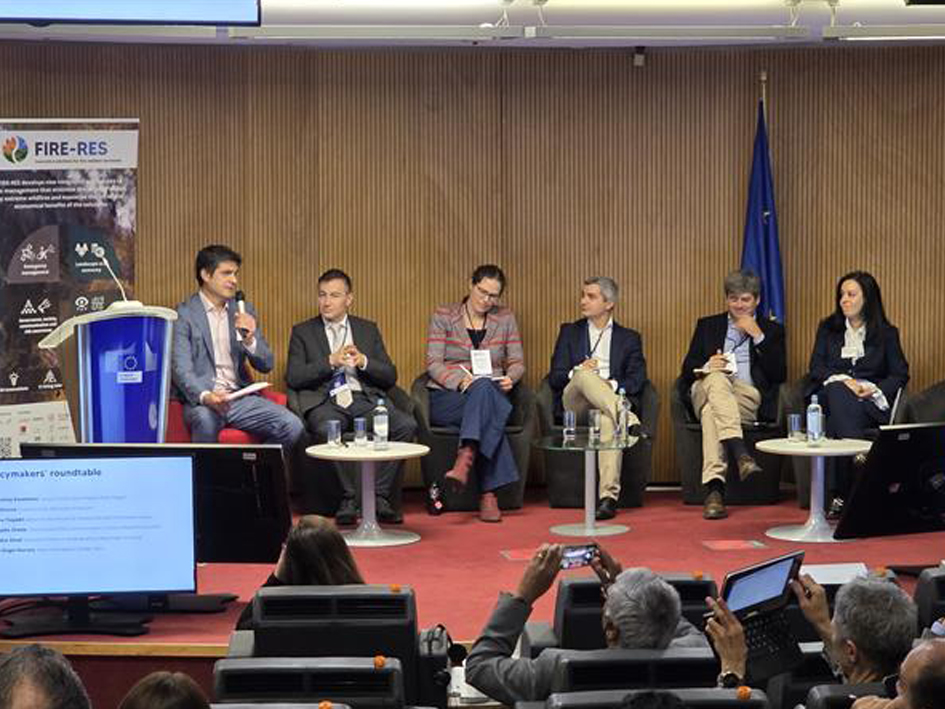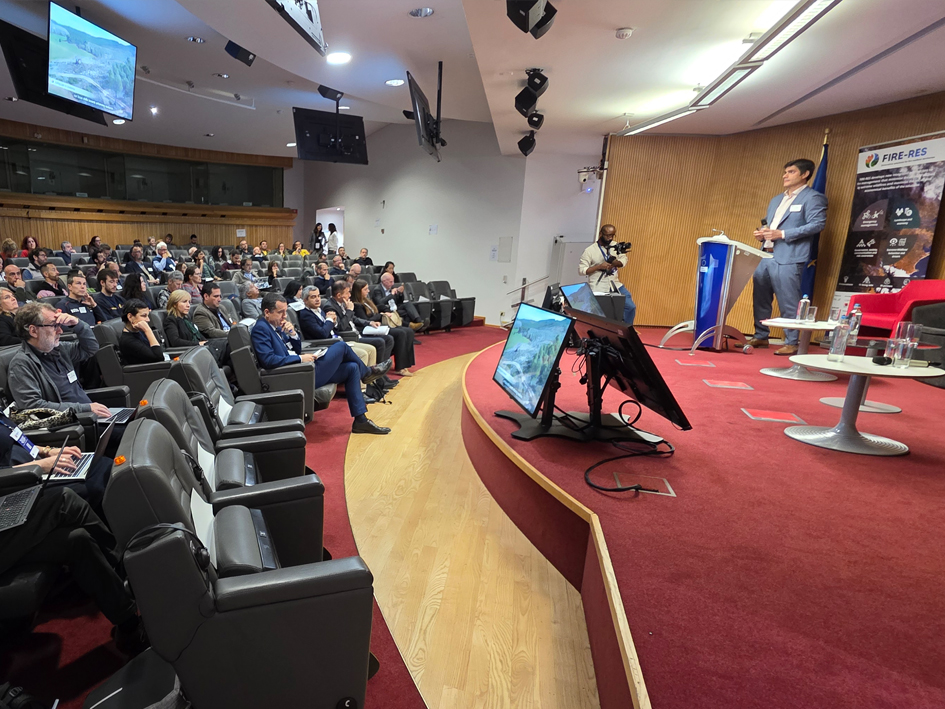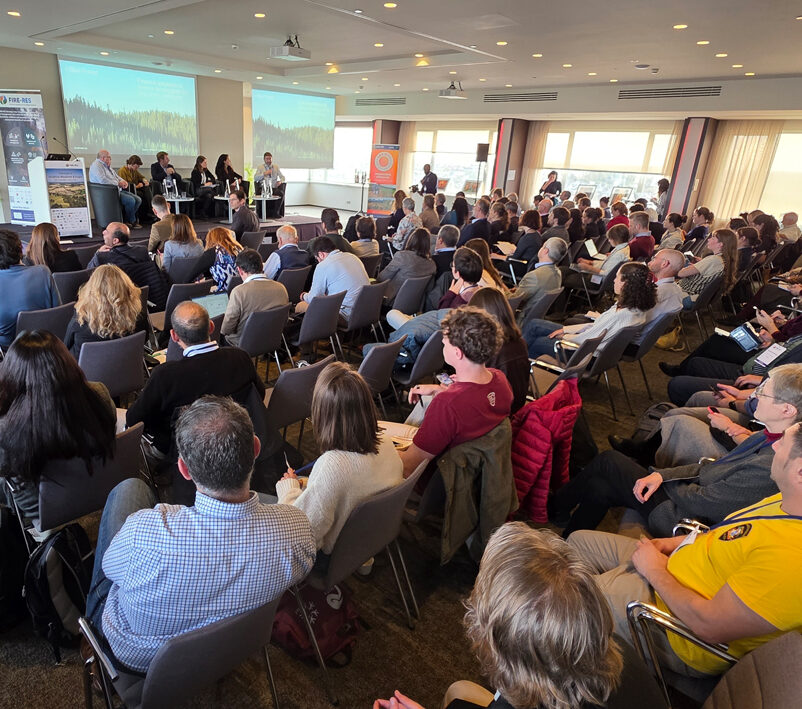The FIRE-RES project concluded its final conference on 4–5 November in Brussels, marking a pivotal moment in Europe’s efforts to address the growing threat of extreme wildfires.
The two-day event, titled “Towards a Wildfire-Resilient Europe: From Knowledge to Policy Action,” brought together over 120 participants from across Europe, including EU policymakers, Members of the European Parliament, regional governments, researchers, and civil society.
Funded under the Horizon 2020 programme, FIRE-RES has worked across 11 Living Labs in Europe to co-design and implement innovative solutions for integrated fire management. The final conference showcased the project’s key findings and policy-relevant results, emphasizing the urgent need for a shift from reactive fire suppression to proactive, landscape-scale resilience strategies.

Highlights from the event included:
- Four thematic panels on resilient landscapes, integrated fire management, innovative financing, and governance for wildfire resilience.
- Keynote contributions from international experts including Phillip SeLegue (CAL FIRE, USA), Val Charlton (Landworks NPC, South Africa), and Elena Górriz (CTFC).
- Strategic roundtable discussions with Members of the European Parliament and senior EU officials, focusing on embedding wildfire resilience into EU legislation and funding instruments.
- A strong consensus on the need for a new programme for wildfire-resilient territories, improved coordination across governance levels and units, and increased investment in prevention and innovation.
Antoni Trasobares, FIRE-RES Coordinator and Director of the CTFC, stated: “This conference has demonstrated that wildfire resilience is not only a scientific and operational challenge—it is a political and societal imperative. We now have the tools, knowledge, and partnerships to replicate and implement solutions at large scale. That is what we plan to do in the coming years by continuing with this exciting project as an upgraded international programme.”

The conference conclusions underscored that climate change and biomass accumulation are the main drivers of Extreme Wildfire Events across Europe. Experts agreed that building a wildfire-resilient Europe requires a paradigm shift—from reactive fire suppression to proactive, Integrated Fire Management at the landscape scale. This means co-designing resilient territories with local stakeholders, embracing holistic land management, and fostering innovation through sustainable value chains that support rural development and the provision of ecosystem services. Participants also highlighted the need for innovative financial mechanisms and governance tools to ensure long-term impact, with clear risk ownership, cross-sectoral collaboration, and accountability. Finally, technological innovation and robust Key Performance Indicators (KPIs) were identified as essential to guide, monitor, and evaluate effective action.
The event concluded with a call to action for EU institutions to integrate wildfire resilience into strategic planning, legislation, and budgetary priorities, ensuring that Europe is better prepared for the increasing risks posed by climate change and land-use dynamics.
Last modified: 10 November 2025










